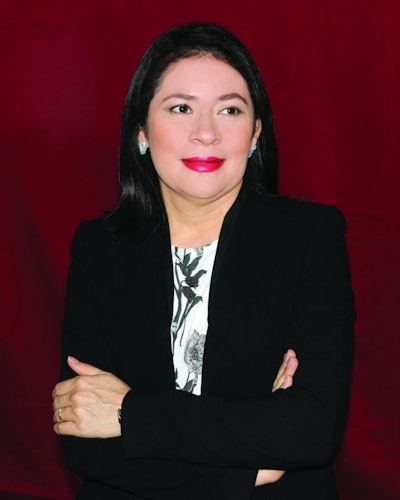

Cargill’s new heavy broiler breeder farm in El Vínculo, Valle de Cauca, Colombia, not only forms part of its strategic growth plan in the region but also demonstrates its commitment to gender equality – it is 100% managed by women.
Cargill did not set out to have the new farm solely managed by women but, according to Xavier Vargas, Cargill Proteína Latinoamérica president, including women in the workforce is simply what Cargill does, be it in management teams or in the broader workforce.
This is not to comply with quotas or because employing women may be in fashion, Vargas continues, it is because hiring women adds a lot of value.
“We are not only talking about live production, but in all areas of the company. This is something that forms part of our culture and our way of operating,” Vargas explains.
Importance of the El Vínculo farm
The new farm opened in 2021, in the midst of supply chain problems, raw material cost increases and requiring much more effort than originally thought. It was completed on time and within its US$10 million budget, with zero accidents.
It is already running at full capacity, with 170,000 birds housed over four state–of–the–art, climate–controlled houses.
“We are very happy with the investment, which is exceeding expectations,” notes Vargas.
The farm is not only helping Cargill to cement its position in the highly competitive Colombian market but illustrates the company’s commitment to the Paradigm of Parity, a coalition of business leaders dedicated to addressing the leadership gap in corporate America and, of which, Cargill is a founding member.
Across Cargill Proteína Latinoamérica there is a target for 50% of the total workforce and leadership teams to be women by 2030. There is, however, already female representation across all areas from maintenance to legal.
Bringing value onboard
The company simply operates a meritocracy, with positions offered to those who deserve them most. In the case of El Vínculo, where all leadership positions are held by women, this occurred simply because, of all candidates interviewed to work at the new farm, women were the most qualified. Across the farm’s workforce, 50% are male and 50% female.
For Vargas, it is easy to see the value of women within the poultry industry. Within Latin America, for example, 80% of those who make supermarket purchasing decisions are female.
“Who is better placed than a woman to help us understand our consumers?” he notes.
Additionally, he believes that women are more careful and pay more attention than men and this is particularly important in the case of the broiler breeder farm where special care is needed.
Vargas believes that women bring a different perspective to that of men, and that they can multitask, something men find difficult.
“When we sit six men down around a table, they bring certain ideas and solutions, often from the same point of view. If, however, there are three men and three women, we approach a problem in a different way,” Vargas says.
Kemberley Umaña is head of production at Cargill’s Planta Occidente in Colombia and has been with the company for 19 years. She worked in various positions within the plant before taking on the roles of supervisor and manager of dispatch and distribution, amongst others. In 2021, she was recognized under the award scheme Step Ahead, organized by the U.S. National Manufacturers Institute which recognizes women in science, technology, engineering and production careers who exemplify leadership in their companies. Cargill
Facilitating equality
Cargill wants to ensure that the recruitment process within the company is fair, that women enjoy the same working conditions as men and that there are correct processes in place to allow women to advance.
The company has had to learn some basic lessons. One has been that premises must have separate lavatories and showers for men and women – this specification was included in the design of the El Vínculo farm, for example. Dedicated breastfeeding rooms have also been established.
Another example has been that of uniforms. After research, the characteristics of a uniform for women were established, and these were not the same as those for men’s uniforms.
More gender parity is needed in the egg sector


















